This essential oils guide shows you how to save money on your essential oils purchases, how to ensure that you are purchasing quality essential oils, and how to store the essential oils you do buy to protect your investment.
Warning: This essential oils guide may step on a few toes. So be it. I love you and I don’t want to see you hurt, so I’ll take the risk. If you read through to the end, it might even save you some money. If you don’t like what I’m about to say in this essential oils guide, chalk it up to my idiosyncrasy as a homesteader, with 35+ years of experience and a very high BS-alarm system. I’ve grown pretty callous to advertising over the years, especially to claims that are too good to be true. When it comes to essential oils marketing the BS alarm system goes off frequently. Make sure to use wisdom and do extra research if a claim seems too good to be true, or just twigs your personal alarms.
Why I love to use essential oils in my home and on my farm
So let me put my cards on the table. I love essential oils. I’ve been buying and using essential oils in my home and on my farm for 35+ years. I use them extensively, and even make my own infused oils, using plants that I grow organically on my homestead. My homestead library has dozens of large reference books on natural home remedies and essential oils best practices. And I’ve read them and refer to them often.
I’ve taken essential oil classes with Vintage Remedies and Herbal Courses with (#Ad) HANES and with Chestnut School of Herbal Medicine. I teach my own classes on herbs and essential oils at the Joybilee Academy and through my members-only platform: The DIY Herbal Fellowship. These are my qualifications to offer you an essential oils guide to help you make wise decisions about your own essential oils best practices.
Essential oils are effective as antibacterial, antifungal, and anti-inflammatory agents and are more effective than some prescription medications for their pain relief and skin-soothing properties. Essential oils also cleanse the air and improve alertness, mood, and comfort in your home or workplace. They are an important class of natural remedies. They can improve your environment and your sense of well-being. My beef isn’t with essential oils themselves.
Are you paying too much for essential oils?
But I want to tell you upfront, if you are buying your essential oils exclusively in 5 ml or 10 ml bottles, you are paying too much. (5 ml is a mere teaspoon.)
If you are using essential oils like prescription drugs, you are using them ineffectively.
If you are convinced that one brand of essential oil is purer, more effective, or more nontoxic than another brand of essential oil, you are paying too much.
And if you’ve bought into a wholesale, multi-level marketing scheme for essential oils, I’m sorry. You are still paying too much for your essential oils. If you are making a lot of money selling a particular brand of essential oils, I have no problem if you want to keep doing that. It’s not that I’m down on a particular brand. But I don’t want other people to be blind to the hype.
Why should I help you save money on essential oils?
I am not a certified aromatherapy practitioner. I don’t sell any particular brand of essential oils. But I’ve used essential oils for over 35 years, effectively, and with appropriate cautions. I’ve used herbal remedies on my farm and used herbs in my business as a soap maker and maker of tinctures and healing balms, for 25 of those 35 years. I’ve freely shared this knowledge one on one with my clients and with you through my blog, my newsletter, and my e-books. I can tell you honestly, you don’t need to rely on any particular brand of essential oil to gain the benefits that God placed in plants for healing and rejuvenation. And you don’t need an oil collection of 30 different essential oils to gain all the benefits that essential oils can bring you for health, wellness, and joy, although if you want to collect essential oils on a large scale, I have no problem with that.
Anyone who tells you that only one brand of essential oils is safe and effective or that one brand is more safe and effective than another brand is selling you a crock of “snake oil”. And any company that doesn’t allow you to purchase your essential oils in larger bottles, 30 ml, 100 ml or even 500 ml sizes, forcing you to purchase your oils monthly, is charging you too much for the privilege of buying from them. If you’ve gotten into a multi-level marketing plan like this, let me show you a better way. You can thank me later.
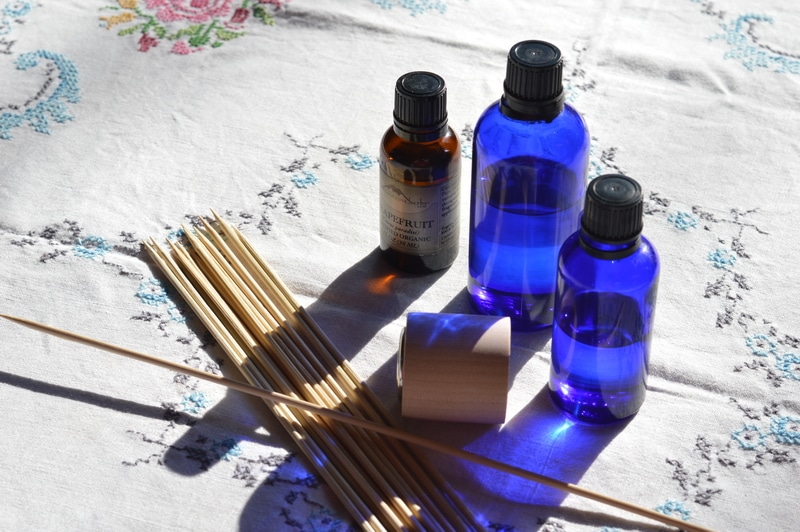
Essential Oils for business
First, if you use essential oils in your business – either on your farm, or adding essential oils to soaps, cosmetics, or healing balms, buy your oils wholesale. There are several wholesale suppliers of essential oils that are direct importers of quality organic essential oils from around the world. Don’t deal with the middle man if you are in business.
One way to tell if the company that you buy from is the wholesaler that other businesses purchase from is to look at the size of the bottles offered for sale. A true wholesaler will be offering bottles by the litre in quantities up to 25 litres. You’ll get appropriate discounts for higher volume purchases. You don’t need to purchase in this volume but the more you purchase any particular oil, the lower the price per litre (or quart) of essential oil should be. On very expensive oils like rose absolute or Melissa natural, you’ll be able to purchase in 50 ml bottles from a wholesaler. You shouldn’t need to mortgage your home to buy wholesale. I use several different wholesalers to purchase my essential oils — especially for those oils that I use a lot. See the comments for a link to some of the wholesalers that I personally use (non-affiliate).
What determines the price of essential oils?
Essential oils vary in prices that are determined by the amount of plant material required to produce the oil, and by the distance that the commodity travels to get to your country. An essential oil company that charges a similar price for all their oils is either buying inferior oils or diluting those oils with a carrier oil before packaging. A wholesale essential oil company may carry 9 different formulas or plant foundations of one essential oil, like lavender oil, each with its own best application, whereas a middle man might carry only one or two.
The availability of essential oils varies according to the political climate of the country of origin and the political climate of the distribution channels. War, natural disasters, and politics can disrupt the supply of essential oils, raising prices. The situation can change monthly. With the crisis in the Middle East since 2012, many of our essential oils are facing these kinds of distribution problems, and that affects the price and availability of essential oils that originate in the Middle East. European essential oil distillers are closer to the source and can import plant materials.
Ensuring quality in essential oils
Second, know that the essential oil companies that sell that little 5 ml and 10 ml bottles buy their essential oils from the same wholesale distributors and so you know that the quality of the essential oils is going to be better and fresher if you order directly from the wholesaler. Multilevel marketing companies that specialize in essential oils are actually middlemen, which buy their essential oils from a wholesaler who imports from the country of origin. The marketing company repackages them in smaller bottles to sell to you.
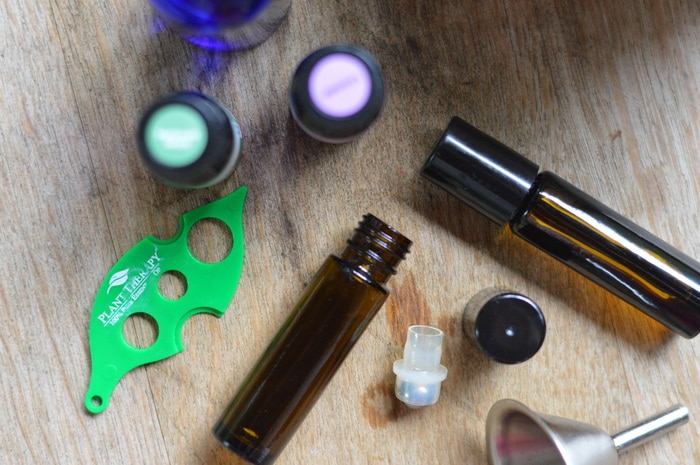
Buying essential oils for home use
Third, if you need to buy in smaller bottles, or you are only using essential oils in your home, plan to buy a 6 month to one-year supply at a time, if there is a price differential. Essential oils are annual crops, which are harvested and produced according to the agricultural harvest season, in the country of origin. You can bet that the essential oil you buy in November is from the same vat as the essential oil that you buy from the same company in February. Essential oils kept in coloured glass bottles, in a cool, dry place, will retain their effectiveness for at least a year. You can save money and packaging by buying in larger amounts. Repackage them yourself into 10 ml bottles and use them with a dropper, roll on, or sprayer to avoid waste. For home use, the essential oils that you buy from a reputable organic retailer like, Plant Therapy, or Rocky Mountain Oils, are just as effective as the oil that you buy from a multilevel marketing company. They are more economical because you’ve cut out the upline tiers.
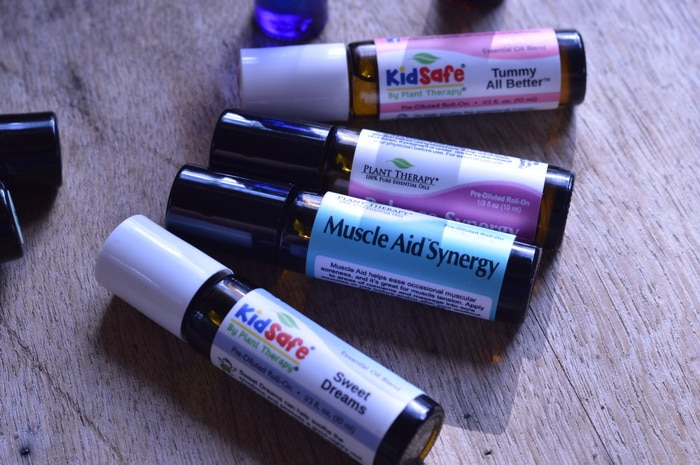
Organic vs Therapeutic Grade
Should you buy “therapeutic grade” essential oils or certified organic essential oils and does it matter? Therapeutic grade is a marketing by-word that is supposed to lead you to believe that essential oils are medicines, safe to be taken internally and that there is a standard set by a third party that regulates essential oils.
This is not the case. Essential oil quality is not regulated by a third party. There is no unbiased standard that essential oils have to meet for the marketing company to call them “therapeutic”. This is a term used internally by the marketing company to persuade you that their oils meet a particular standard. But the standard varies between marketing companies and it is not regulated.
On the other hand, certified organic is measured by an outside agency that grants organic status based on certain factors like lack of pesticide, herbicide, and chemical fertilizer use. Even these organic standards vary depending on the certification agency. Plants store chemicals in their lipid cells, however. Since essential oils draw from the lipid cells of plant material and concentrate these lipids, there is a potential for concentrations of chemicals in non-organic essential oils. It would seem prudent, to limit your exposure to potentially toxic chemicals, to choose certified organic essential oils for some applications.
Certified organic essential oils will be more expensive drop for drop, than conventionally grown and extracted essential oils, due to the added expense of certification. But the price difference may be negligible overall. So be sure to price both conventional and organic essential oils before you decide which is better for your purposes. For DIY cleaning products, I’ll often go with the less expensive conventional essential oils, saving my budget so that I can use organic essential oils in salves, creams, and ointments.
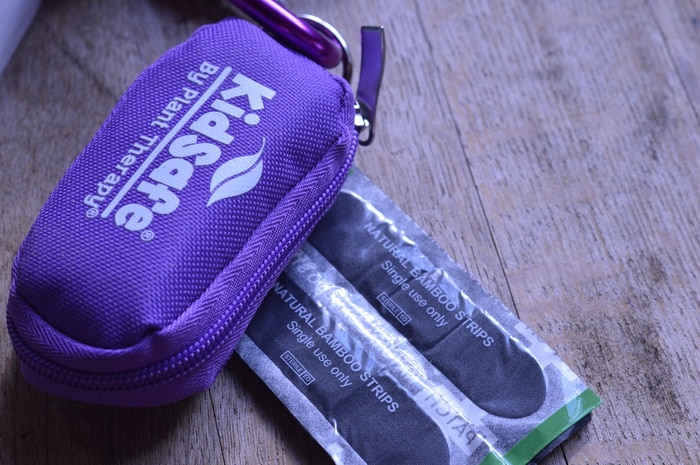
Third-Party Testing
The two companies I use essential oils for personal and home use, Rocky Mountain Oils and Plant Therapy, both test each batch of essential oils they sell using a third-party laboratory. You can download the certification results of these tests for any essential oil that you are interested in. They are transparent with the quality of their essential oils. This is why I choose to purchase oils from them. These third-party reports give me confidence in their efforts to maintain the quality of their essential oils over the long term.
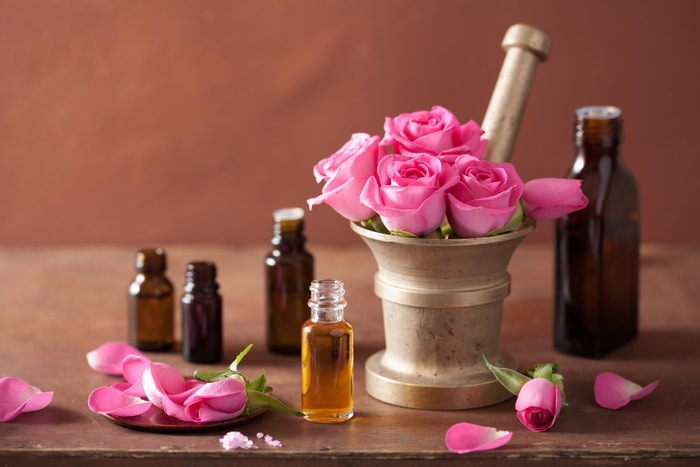
How to preserve your essential oils
When repackaging essential oils from a larger bottle into a smaller bottle, use dedicated stainless steel funnels made for use with essential oils. These will prevent spills and save you money. Use only stainless steel and glass when working with essential oils. Some plastic will degrade when it comes into contact with pure essential oils, leaving plastic residues in the essential oil itself.
Use restraint in your purchases of essential oils
Don’t buy a larger quantity of essential oils than you can reasonably use in a year and plan to purchase fresh each year. Stocking up for more than 1 year’s supply of essential oils is a waste of money if you don’t protect your investment or end up tossing unused oils. Further resin-based essential oils like myrrh can turn gummy on you, in their bottles, with long storage. Essential oils are called “essential” because they evaporate when exposed to air. Leaving them in a bottle with the lid off or allowing them to be stored, exposed to light or extremes of temperature will also waste your investment.
How to protect your investment:
Store your essential oils in a cool, dark place, away from light and temperature extremes. Citrus essential oils can be stored in the fridge to prolong their shelf life.
Store your essential oils in coloured glass bottles with tightly capped lids or in stainless steel bottles that are sealed or tightly capped.
Repackage your essential oils into refillable, sealed bottles with a drop reducer or spray nozzle to measure carefully each dose, to avoid waste through spillage or evaporation.
Use appropriate small stainless steel funnels to transfer essential oils from larger bottles to smaller bottles.
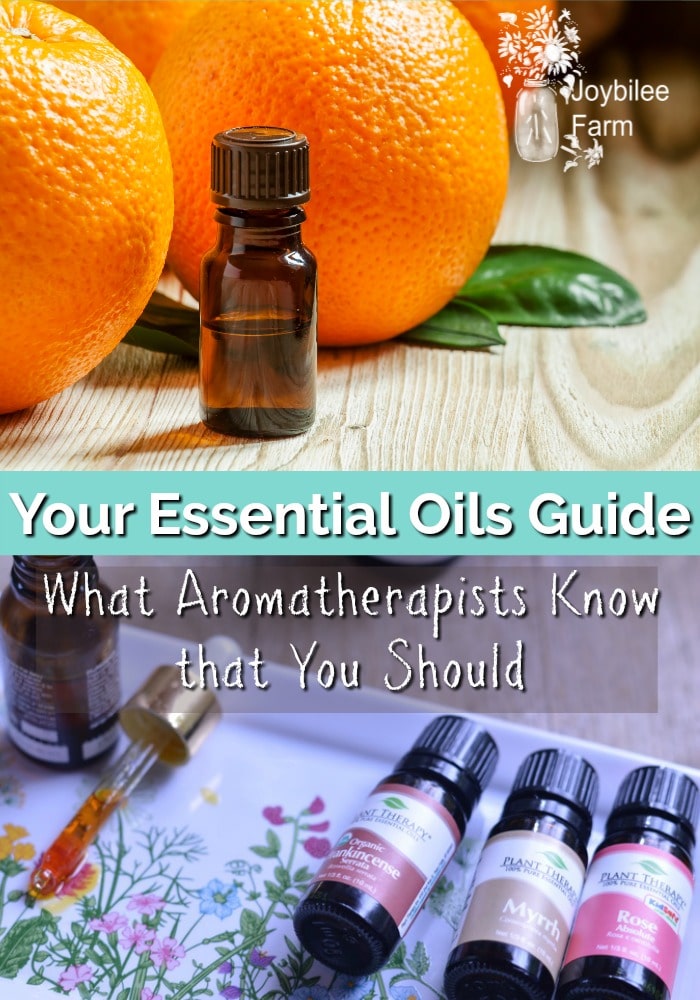
Essential Oils Guide recap
In this essential oils guide, I discussed ways to save money on your essential oils purchases. I talked about how to find a quality essential oil supplier and what I look for when choosing who to purchase my essential oils from. I also talked about how to store your essential oils to prolong their shelf life and protect your investment.
Essential oils are a natural, effective way to combat antibiotic-resistant bacteria. They support healing and wellness both in the home and in the stable. Avoid multi-level marketing companies. Purchase your essential oils on an as-needed basis, in larger bottles. One brand of essential oil isn’t necessarily any better than another. If you use a limited amount of essential oils, purchase them from reputable sources of quality essential oils like Plant Therapy or Rocky Mountain Oils.
If you use essential oils in your business, purchase them from a wholesaler. This is a more economical and wiser use of your hard-earned cash. Once you get your essential oils home, protect your investment and you will have an effective and economical start to your homestead apothecary. The recommended dosage of most essential oils is only a drop or two so a little goes a long way.
Grab my Book and gain confidence in using essential oils right away!
The Beginners’ Book of Essential Oils is the answer to the question, “Where do I even start?” Explore your first 10 essential oils and learn to use them with confidence, with over 80 recipes for health, beauty, and cleaning products. Written with the beginner or intermediate essential oil user in mind.
This essential oils guide sifts through the hype and confusion and gives you the knowledge and confidence you need to safely explore 10 foundational essential oils, without needing to spend hundreds of dollars just to begin.
Written by an herbalist, not an essential oil marketer, so you can trust that the information is based on real botanical research and experience and not marketing hype.


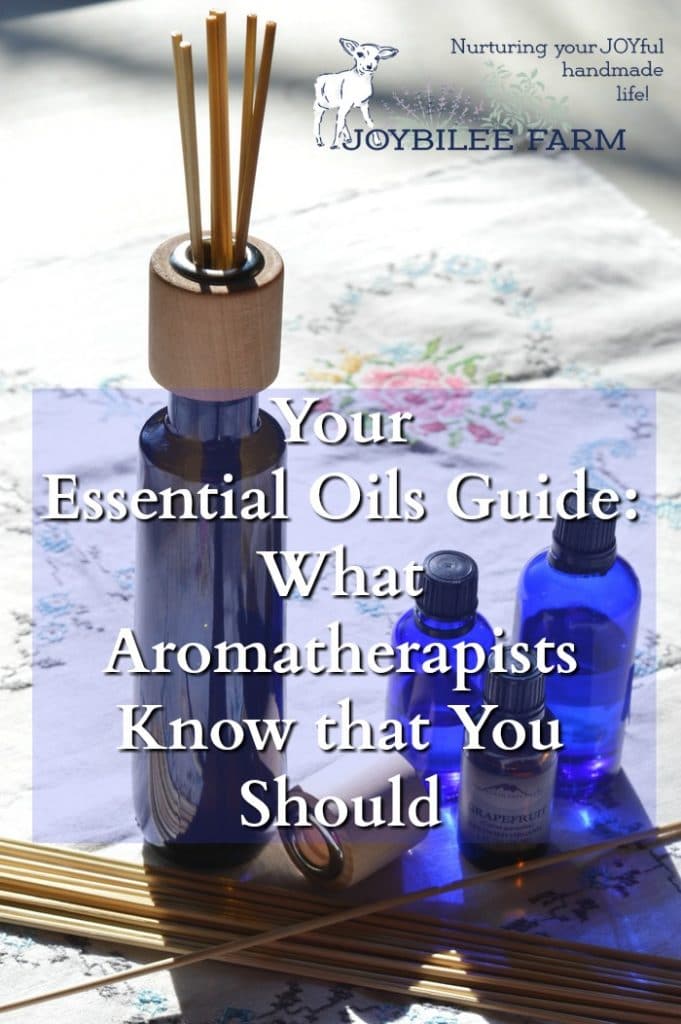
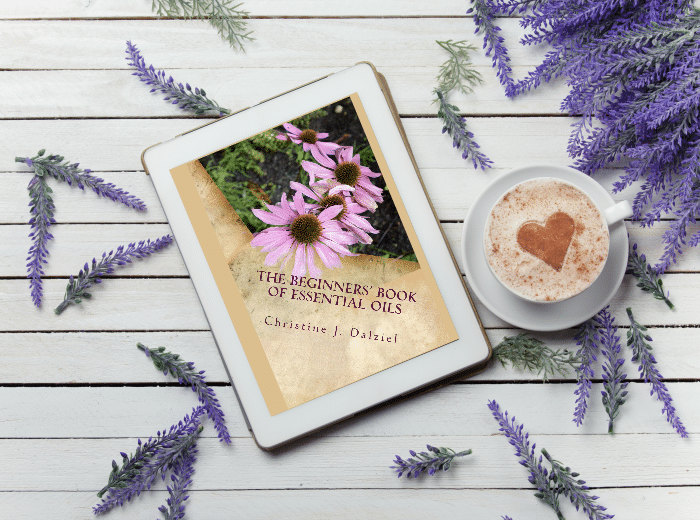


I don’t know them. Thanks for the recommendation.
Eden’s Garden is another company with good prices and third party testing. I have been very happy with them, even more so than Rocky Mountain Oils.
This was really helpful for me! I’ve been recently exploring EO’s and most of all an herbal apothecary. This has definitely given me more insight because I’ve been a little leery of certain MLM’s companies prices. I have new things to consider and new places to look to buy from!
I’ve been purchasing from Bulk Apothecary for many years. They have never let me down. Now that I’ve been better educated, I shall do a check on the labels for “organic.”